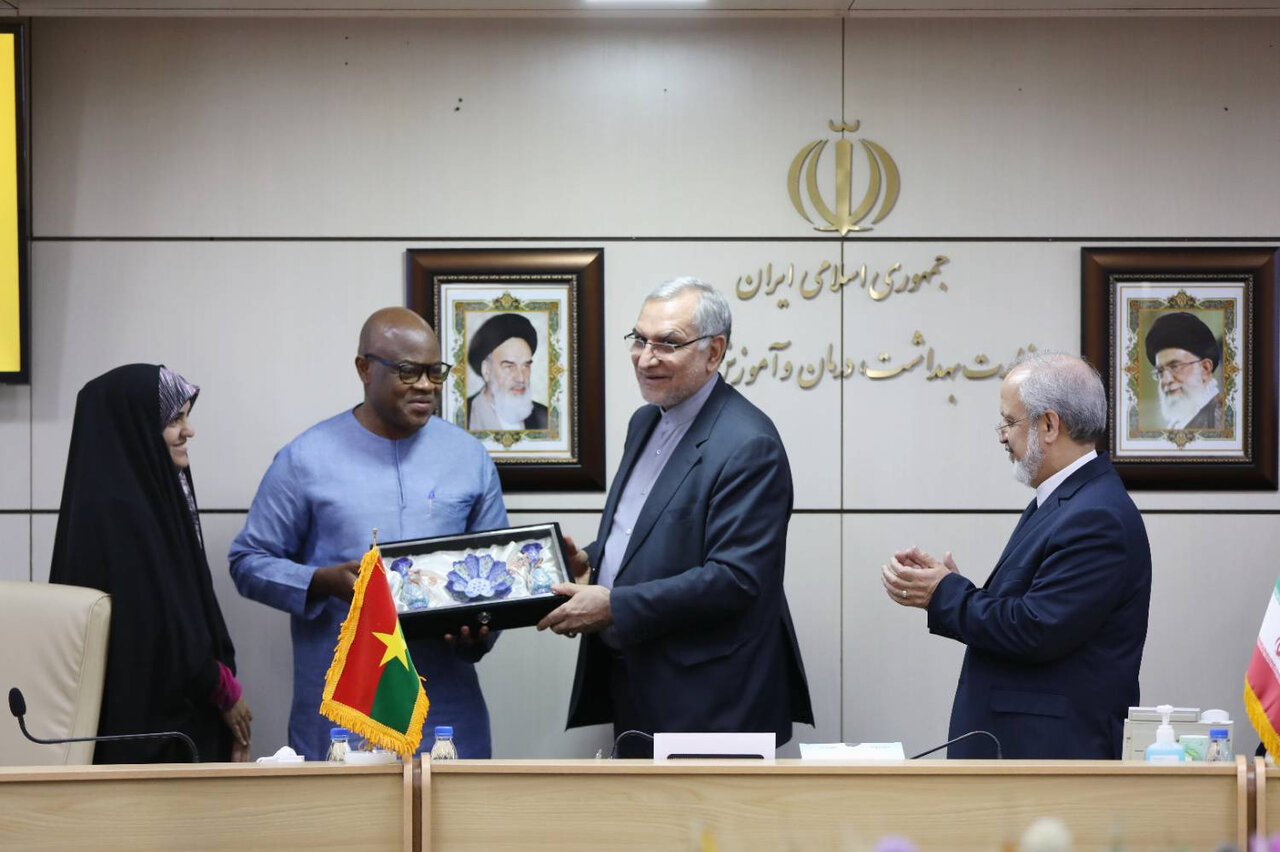Burkina Faso seeks to import Iranian medical equipment

TEHRAN - Robert Lucien Jean-Claude Kargougou, the health minister of Burkina Faso, has called for cooperation with Iran in the field of health, seeking to import Iranian medical equipment.
“We are ready for any kind of cooperation with Iran and we request to benefit from Iran's experiences in addition to importing types of medicine, medical equipment, and vaccines,” Kargougou said.
He made the remarks in a meeting with his Iranian counterpart Bahram Einollahi in Tehran on Monday.
“We visited the capacities of Iran’s health sector and we admire Iran for its progress and self-sufficiency in the field of health and especially for the production of 97 percent of the needed medicine inside the country.”
“Iran excels in the field of health and has advanced hospitals, so we welcome the development of cooperation with Iran,” he highlighted.
“The coronavirus disease has been controlled to some extent in our country, but there are still cases of infection, and with the vaccines donated by Iran, we can have a wider vaccination coverage to contain the disease.”
Einollahi, for his part, said Iran is ready to provide Burkina Faso with 200,000 doses of coronavirus vaccine.
“Unfortunately, the cruel sanctions against Iran, especially during the coronavirus pandemic, made the situation difficult for the people, but we were able to move towards self-sufficiency in the production of medicine and medical equipment.”
During the pandemic, six types of vaccines were produced in Iran, he said, adding: “In addition to meeting the needs of the country, we can export the vaccines to other countries.”
There are 51 universities and 16 faculties of medical sciences in Iran with 270 thousand students, 20 thousand faculty members, and 7 thousand foreign students, Einollahi noted.
“A broad range of health, treatment, and research services are available in the country and many patients from abroad travel to Iran to receive medical services.”
All the indicators of health and treatment have made significant progress after the Islamic Revolution, and now Iran is one of the leading countries in this field, the deputy health minister has said.
Health is one of the areas that got a good jump after the Islamic Revolution, ISNA quoted Saeed Karimi as saying.
It should be noted that in the early years of the Revolution, even for a cataract, which is a routine ophthalmic operation, the patient was sent abroad, but now patients from abroad come to Iran for the most advanced surgeries, he highlighted.
“At the beginning of the Revolution, there were just 56,000 hospital beds, but now we have 156,000 hospital beds,” he noted.
Meanwhile, there were just seven thousand specialists, but now there are 70 thousand specialists and sub-specialists in the country, he added.
Therefore, the health indicators after the victory of the Islamic Revolution cannot be compared with the conditions before the Revolution, Karimi said, adding that although 40 years have passed, many countries have not found such a leap in their healthcare.
In June 2021, Ahmed al-Mandhari, the World Health Organization director for Eastern Mediterranean Region, said the Islamic Republic of Iran is a role model for primary health care.
For the past four decades, its PHC network has aimed to ensure that people have timely access to affordable, accessible, and acceptable essential health services, he explained.
In October 2021, World Health Organization (WHO) representative to Iran Jaffar Hussain, said that Iran's health system can be a model for other countries in the region, especially in the field of health and the use of valuable forces such as healthcare providers.
The national budget bill for the next Iranian calendar year 1402, which starts on March 21, has increased the health sector’s budget by 29 percent compared to the current year’s budget.
The bill has proposed a budget of 2,730 trillion rials (about $6.8 billion) for the Ministry of Health, IRNA reported.
The administration has also proposed 690 trillion rials (about $1.5 billion) as subsidies to provide medicine by health industries.
MG
